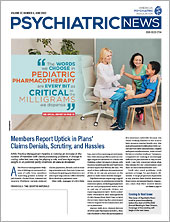June may mark the beginning of summer, but it is also Pride Month. This month has been designated to honor LGBTQ+ individuals, emphasize their rights, and acknowledge their struggles. June was selected to commemorate the 1969 Stonewall Uprising in Manhattan, which occurred on June 28. It was spearheaded by transgender women of color including Marsha P. Johnson and Sylvia Rivera.
This Pride Month, as a queer immigrant of color with a uterus, I am alarmed by the flood of bills filed in multiple state legislatures focusing on opposing immigrant rights, rescinding reproductive rights, and reducing the rights of LGBTQ+ individuals. As a psychiatrist, I am especially concerned about how these anti-rights bills will affect the mental health of the millions of individuals they impact.
As of April, 175 anti-LGBTQ+ bills have been filed. This contrasts sharply to the 45 bills filed throughout 2018 and represents an already staggering 400% increase in anti-LGBTQ+ bills within just four years. And more bills may be filed later this year. Approximately half of these bills target transgender individuals, with some going so far as to target the clinicians who serve them. For example, two Texas bills, SB 1646 and SB 1311, target physicians involved in providing lifesaving, transition-related health care: They seek to revoke a physician’s license to practice medicine under the guise of framing such medical interventions as “child abuse.”
Another state, Alabama, recently passed SB 184, which makes it a felony, punishable by up to 10 years in prison, for physicians to provide gender-affirming medical care to minors. Similar bills were passed in Louisiana (HB 675), Arizona (SB 1138), and Idaho (HB 675). What comes next for a marginalized population that loses access to care that directly correlates with a reduction in suicidality? This June, we may be proud, but we are also exhausted.
Our professional organization, APA, has been outspoken in opposing any type of legislation that compromises patient safety, including access to gender-affirming care for all individuals regardless of age. For example, in response to the two Texas bills, APA tweeted its 2020 Position Statement on the Treatment of Transgender and Gender Diverse Youth and published a similar position in collaboration with five other medical organizations. APA has also joined in an amicus brief in a lawsuit to block a directive issued by Texas Gov. Greg Abbott related to SB 1646 and SB 1311 that directs state agencies to classify gender-affirming care as child abuse; it has also joined in an amicus brief against an Arkansas law banning gender-affirming therapy.
APA stands strong in opposition to state legislative efforts to criminalize or penalize physicians for providing necessary care for their patients. Patients and their physicians together—not policymakers—should be the ones to make decisions about what care is best. As physicians, we must advocate to protect not just the rights of our patients, but our own right to provide evidence-based and affirmative patient care.
Over half the states (29 to be precise) do not offer full protection from discrimination for LGBTQ+ individuals. We must look to federal legislation for redress. Please contact your U.S. senators to urge them to pass the HR 5 Equality Act. This bill has already been passed by the House of Representatives with APA’s support and will amend the 1964 Civil Rights Act to protect people from being discriminated against based on sexual orientation or gender identity.
Ask your senators to support the Equality Act!Want to go above and beyond? Support organizations like the
Transgender Law Center (TLC), which is the largest national trans-led organization grounded in legal expertise and committed to racial justice. TLC employs community-driven strategies to keep transgender and gender nonconforming people alive, thriving, and fighting for liberation.
We could reflect on key moments of injustice in history, hypothesizing what would have been done if we had been alive then, but we are alive now, and this moment is a call to action—not just for our patients, but also for our profession and for our colleagues across the gender and sexuality spectrum. ■


